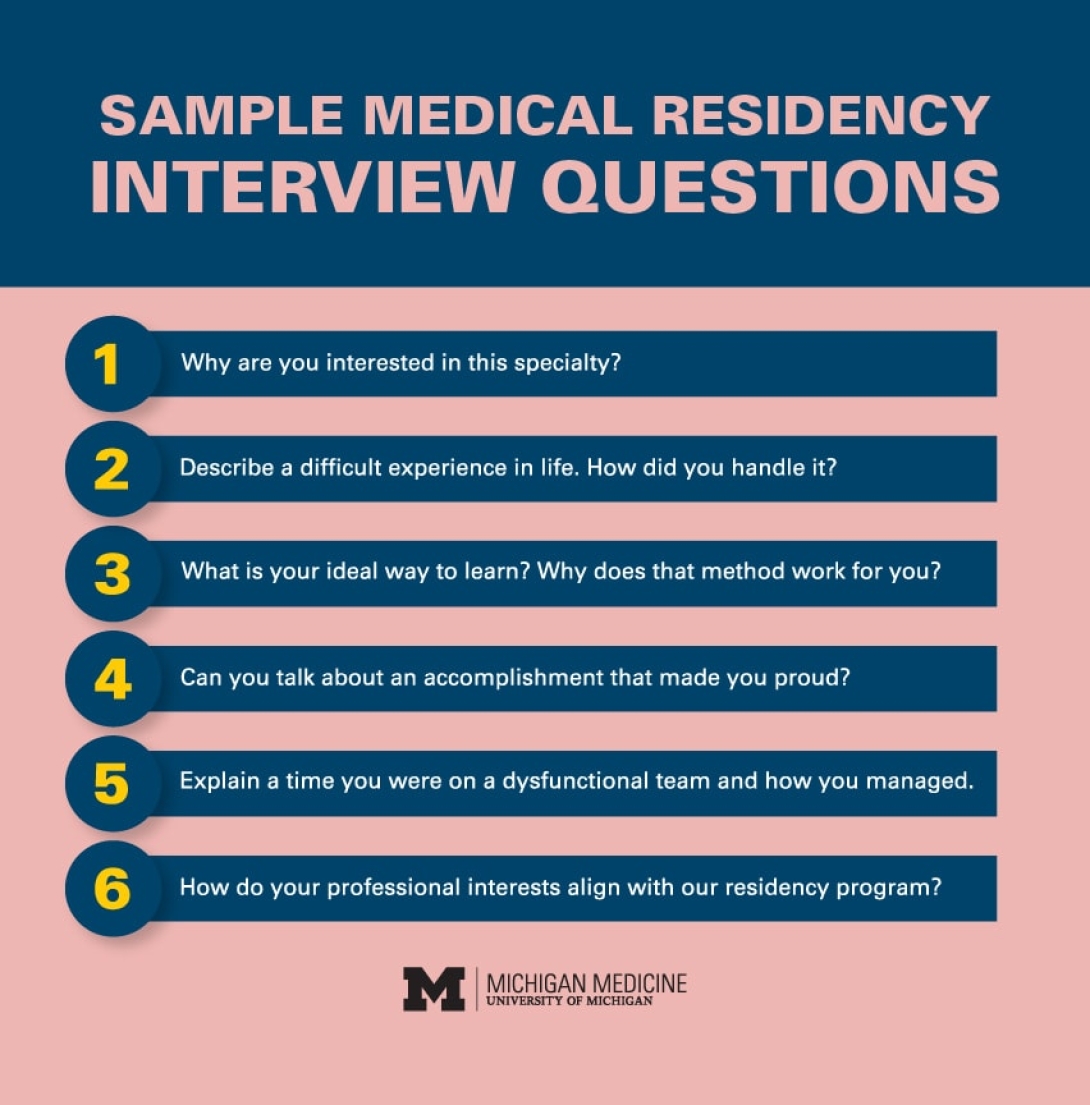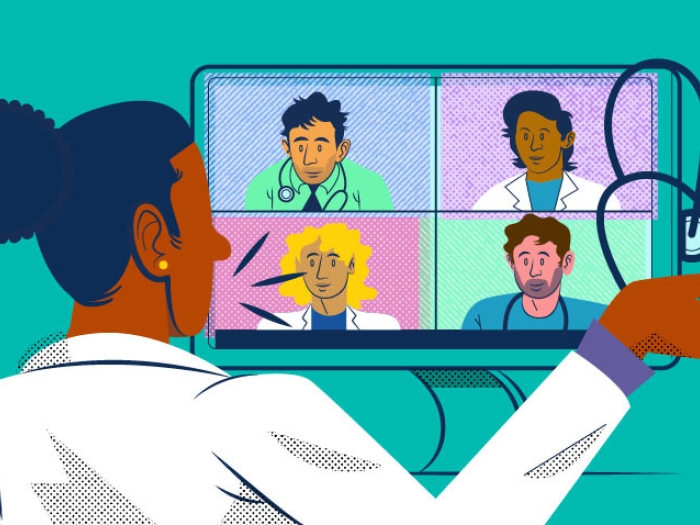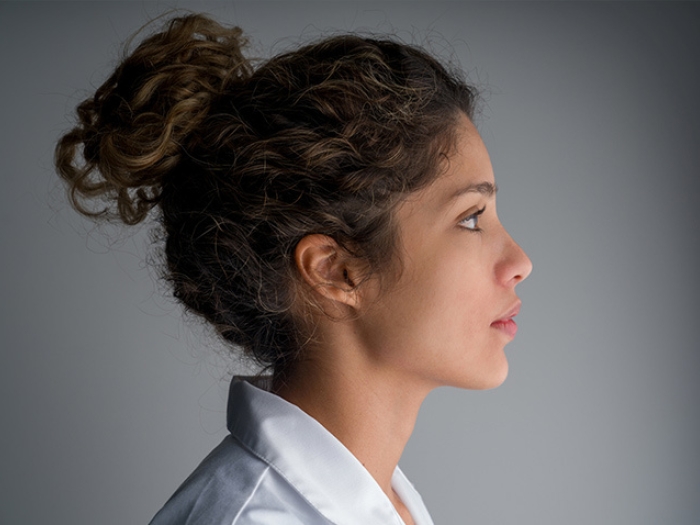As the final step in the application process, a conversation with program directors and current residents is a make-or-break opportunity. Here’s how to succeed.
7:00 AM
Author |

You've secured letters of recommendation and transcripts, perfected your personal statements and submitted your test scores as part of the medical residency application process.
The final step: on-site interviews with potential programs.
The meetings, which typically involve several short conversations with faculty members, allow program directors a crucial chance to gain new insights before extending an offer.
LISTEN UP: Add the new Michigan Medicine News Break to your Alexa-enabled device, or subscribe to our daily audio updates on iTunes, Google Play and Stitcher.
"When we look at somebody on paper, they've often checked a lot of boxes," says Michelle Caird, M.D., director of the orthopaedic surgery residency program at Michigan Medicine.
That's why a positive, polished impression can help a student stand out in a crowded field of talent. Caird's program has eight available slots and interviews about 90 candidates out of 850 applicants yearly.
A good exchange can help interviewees land higher on the rank order list that programs submit to the National Resident Matching Program that computes the preferences of both parties.
"Your application gets you in the door," Caird says, "but it's really the interview that helps us understand whether we'd make a good match."
She and two other Michigan Medicine residency program directors shared advice about the process.
How to interview for medical residency
Be courteous:
The prospect of a big interview can be stressful, but it's never an excuse for bad manners — no matter how brief an exchange might be. Treat everyone you meet with courtesy and respect.
"We always joke that the surest way to have a problem on your interview day is to interact poorly with our administrative staff," says Heather Burrows, M.D., Ph.D., who directs Michigan Medicine's pediatric residency program. "That's likely to carry over into how they might act as a resident.
MORE FROM THE LAB: Subscribe to our weekly newsletter
"We want someone who's going to work well with all members of the team."
Also crucial is how candidates interact with current residents (who may, in fact, have a say in the final decision).
Some programs may offer a dinner event, small-group interviews or a social hour to learn more about a program in an informal setting. Keep it personable yet professional throughout.
Notes Caird: "Even though these types of sessions are more casual, it's still an interview."

Be prepared:
Residency interviews, which last as little as 10 minutes, are peppered with open-ended questions that allow an applicant to expand on education and accomplishments.
That's why it's important to have a personal narrative clearly defined — with specific examples in mind — to make your answers resonate when seconds count.
SEE ALSO: Real-Life Advice from First-Generation College Students Who Made it to Med School
Expect to talk about teamwork, traits, personal and professional passions, and thought processes, says Marc C. Thorne, M.D., MPH, director of the otolaryngology residency program at Michigan Medicine.
"If you've done research, make sure you can clearly and concisely connect the critical thinking that was involved and explain behaviors that highlight what qualities you'll bring to a training program," Thorne says.
Don't worry if your research or group project wasn't a big success. Residency directors are just as interested in thoughtful answers about how failures or hardships were addressed.
"That insight can be valuable," says Thorne, who has interviewed prospective residents for eight years. "I'm not looking for somebody who is clearly an expert, but one who is committed to continued improvement and learning."
Be conversational:
Residency directors want to hear how candidates were drawn to their intended specialties — connections that can sustain a doctor's passion and empathy in the years of training ahead.
"I love to hear somebody's story about how they came to find orthopaedics," Caird says. "And I'm always excited if somebody has done some good research that they love."
We're really looking at that sort of more intangible fit in engagement and interpersonal interactions.Heather Burrows, M.D., Ph.D.
That kind of preparation is a given, of course, but personality also counts. Practice interviewing with a friend or your school's career services office to get more comfortable with casual conversation in a professional context.
SEE ALSO: What the Michigan Med School Admissions Team Looks for on Applications
"We're really looking at that sort of more intangible fit in engagement and interpersonal interactions," Burrows says, noting that minor nerves are understandable but anxiety that disrupts the conversation can be a problem.
Bad attitudes, likewise, can be a deal breaker.
"Every once in a while, you have somebody who doesn't seem interested or want to be here," adds Burrows, who interviews 300 candidates (and hires 24) each year. "That, to me, feels like they're wasting their time and money — and they're wasting ours."
Be polished:
Come well-rested and properly dressed to make a good impression.
"Appropriate eye contact, good posture and professional attire help send a message of competence and confidence," says Thorne, who fills four yearly residency slots from a pool of 400 applicants.
Those elements hold weight. Studies have shown that doctors' appearance matters to the people they treat.
Notes Burrows: "Patients make snap judgments about whether you're going to be a competent and caring person in the first few minutes they interact with you."
Residency program directors are seeking the same connection in the brief time they spend with interviewees.
Says Caird: "I'm looking for someone who can speak well — someone who is poised, composed, accomplished and really shows that desire to learn."
Applicants need to get a sense of their potential fit for the program, too.Marc C. Thorne, M.D., MPH
Be proactive:
Make no mistake: An interviewer will conclude the meeting by asking if a candidate has any questions of his or her own.
Don't ignore this opportunity. It's a crucial moment to demonstrate interest and show that you value preparation and commitment.
Otherwise, "some directors will interpret that as a lack of enthusiasm or interest in the program," Thorne says.
SEE ALSO: Why U-M's Medical School Wants More Students with Disabilities
Beyond researching the program, be sure to learn about the people you'll meet. They're the ones who hold a key stake in your training and potential career path.
"Take the time to review those faculty members' areas of interest, both clinically and academically," Thorne says. "Applicants need to get a sense of their potential fit for the program, too."
It's important to show appreciation for an interviewer's time, but Burrows discourages sending thank-you notes and doesn't factor them into her final decision.
Going forward, candidates should evaluate all aspects of the interview when compiling their own rank lists to submit.
That potential relationship, after all, extends well past the residency.
"I'm making a long-term commitment to the resident as they develop their career," Burrows says. "We continue to be involved with our residents for the rest of their lives."

Explore a variety of healthcare news & stories by visiting the Health Lab home page for more articles.

Department of Communication at Michigan Medicine
Want top health & research news weekly? Sign up for Health Lab’s newsletters today!





